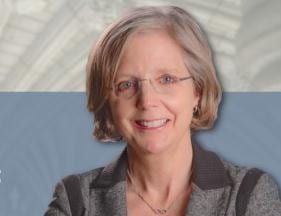Deborah Coyne sees the big picture. And that picture involves one happy, united Canada. And a lot of independent commissions.
Considered a long shot to grab the – apparently – much-coveted top job at the Liberal Party of Canada, Coyne doesn’t see winning as a prerequisite to having an impact on the party. She’s in to cut through all the regional mindset that separates the Liberal Party and Canada as a whole.
“We’re losing the sense of being in this together,” Coyne says.
She has, at least in quantity, staked out more policy standpoints than any other contender and, in quality, has probably the most substantive and in-depth positions.
Coyne’s favourite legislative tool is, no doubt, the independent commission.
She would strike one to fix healthcare, another to fix the country’s equalization formula; one would bring all levels of government (including aboriginal) together; yet another would ensure that federal appointments are purely apolitical.
One of her big independent commissions would be a judicial council that would analyze changes to the Criminal Code so that legal issues can stop being a “political football” meant to pander to a partisan base.
This criminal justice council, independent of Parliament, would bring in independent legal scholars, as well as other stakeholders – such as First Nations groups – to study existing and proposed laws, with the goal of providing Parliament with an independent perspective.
That council could tackle questions such as sex work, drug legalization and suicide without having to navigate the difficult political minefield.
Coyne says that, right now, the Criminal Code is a mess.
She points to a spate of sex work laws struck down by the Ontario Court of Appeals, which are currently being examined by the Supreme Court. She says she supports axing them but says that replacing these laws with something else is probably more a job for scholars and experts, not the prime minister.
“I’m more of a broad thinker,” she says.
Those broad thoughts include establishing regional aboriginal self-governed school boards, refocusing federal transfers to the provinces to fight poverty and inequality, and – of significant interest to same-sex couples looking to start families – finally updating Canada’s antiquated Assisted Human Reproductive Act, which lays a confusing groundwork for couples looking to have babies.
Coyne has repeatedly hit the idea of a “national economic union,” the idea that rather than trying to make each region of Canada into an independent economic block, Ottawa should work to break down inter-provincial trade barriers and strike a committee to reexamine and simplify how equalization payments are doled out. Factionalizing the country, and pitting provinces against each other, is “antithetical to our federation,” she says.
Her ideas on normalizing the federal government’s relationship with the provinces will, she hopes, reboot national unity in this country.
Deborah Coyne in her own words:
Federal transfers: “Equalization is completely messed up. Alberta wants to know if it’s paying Quebec daycare.”
Why she’s running: “I’m in it to . . . raise the issue of strong national leadership and pull Canada together.”
Reproductive rights: “National action is also required to clear up several confusing provisions of the criminal law, such as the fact that it is still illegal to pay for donor eggs or sperm or pay a surrogate mother.”
This is the fourth in a series on the Liberal Party leadership candidates. For more, see:
Martha Hall Findlay’s realism
Joyce Murray’s appeal
Wrong race, wrong time?


 Why you can trust Xtra
Why you can trust Xtra


